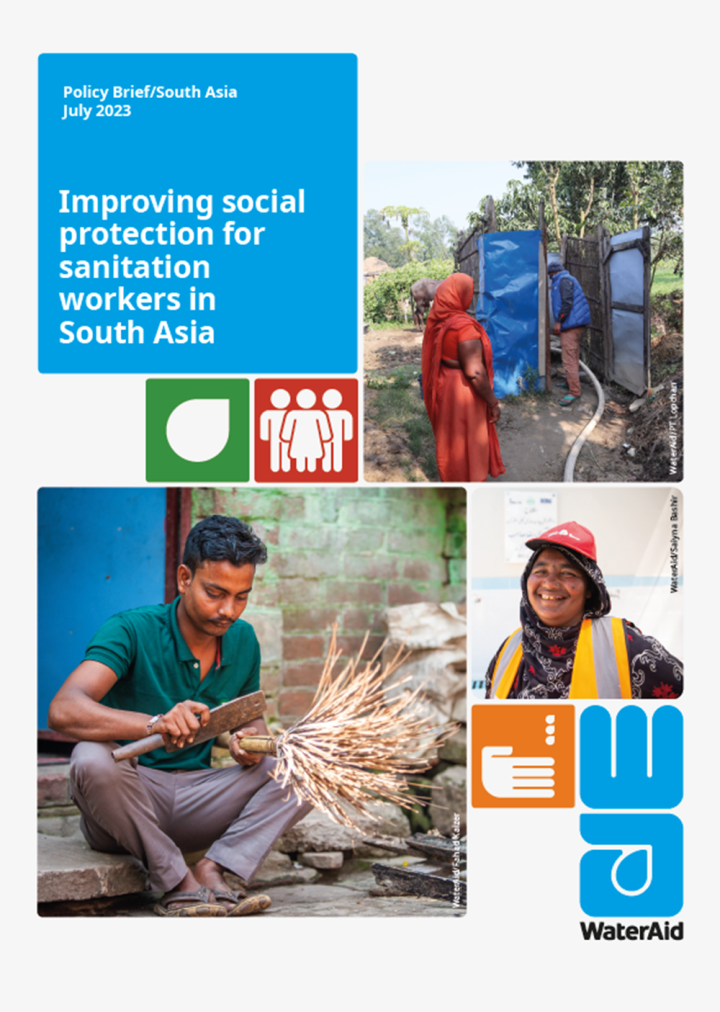Improving social protection for sanitation workers in South Asia Vanita Suneja, Jaison Thomas and Faysal Abbas, with contributions from Andrés Hueso González, Sterenn Philippe, Julie Fisher. Supported by Bill & Melinda Gates Foundation (2023)
Sanitation workers provide an essential public service to ensure cleanliness and safety along the sanitation chain. This is key to achieving the ambitious Sustainable Development Goal (SDG) 6, although poor working conditions, social and economic marginalization, high risk of infection and injury even death, mean it is often at the cost of their dignity, health and life. Strengthening social protection schemes for sanitation workers is important to reduce and compensate for the innate risks and impacts of their profession. WaterAid commissioned a study in Bangladesh, Nepal and Pakistan to assess the status of social protection schemes for sanitation workers. More specifically the study looked at access, coverage of these schemes as well as gaps and challenges faced by sanitation workers.
This South Asia Policy brief focuses on key recommendations on improving social protection for sanitation workers based on the finding from the three in-country studies.
Bibliographic information
Vanita Suneja, Jaison Thomas and Faysal Abbas, with contributions from Andrés Hueso González, Sterenn Philippe, Julie Fisher. Supported by Bill & Melinda Gates Foundation (2023). Improving social protection for sanitation workers in South Asia WaterAid
Filter / Tags
Recommended by SuSanA (other than SuSanA publications)Factsheets and policy briefsEnglishImport to Sanitation Workers PlatformHealth & SafetySocial securityHealth & SafetySocial security
External links
Improving access to social protection for sanitation workers in South Asia
Around the world, sanitation workers perform an essential public service yet have limited social protection, low incomes and are prone to multiple health hazards. This synthesis report brings together three country studies conducted to assess the status of social protection schemes for sanitation workers in Bangladesh, Nepal and Pakistan. The accompanying policy briefs provide key recommendations for improving workers' social protection in those countries.
Downloads
Improving social protection for sanitation workers in South Asia - Policy Brief
Type: application/pdf
Size: 5.83 MB

